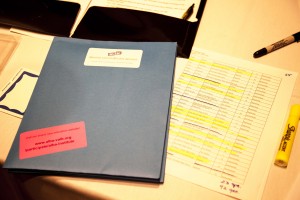ALBA launches new website with standard-aligned teaching resources
ALBA is proud to announce a new website for high school teachers in Social Studies, Spanish, and English Language Arts, featuring resources and lesson plans aligned with the Common Core State Standards.
The Spanish Civil War is a crucial event in twentieth-century world and U.S. history, and key for understanding the origins of World War II and the Holocaust. It a unique opportunity to introduce major historical, political, and cultural issues. It also allows students to understand how political ideas and ideals shape people’s lives, moving them to make difficult and sometimes dangerous choices. Teaching the Spanish Civil War—in which 2,800 U.S. volunteers risked their lives to fight fascism—allows teachers to work with a wealth of compelling primary documents that get students thinking about essential questions:
- Why should we care about events that happen far away, or that happened a long time ago?
- How do we decide who is on the right side of an armed conflict?
- When do we stand up for what we believe in?
- What are our obligations in the face of injustice?
- How do we resolve competing loyalties?
- How do images and texts shape our view of the world—and how can we use them to shape others’ views?
For teachers of Social Studies/History, the stories embedded in the primary source materials can provide links between U.S. History and World History and shed new light on the subjects that are already in the existing curricula: the impact of the Great Depression on the ideological tendencies of US citizens, totalitarian threats to democracy, the origins of World War II, debates about the ever-present tension in U.S. political culture between isolationism and interventionism, the impact of immigration, and the unexpected consequences that led to the Cold War. ALBA’s primary source materials are especially productive when taught in the context of the 1930s (rise of fascism), the 1940s (the origins of World War II), and the 1950s (Cold War, McCarthyism). ALBA’s lesson plans based on contrasting primary source documents provide a wonderful opportunity for Document-Based Questions (DBQs). Go to Lesson Plans
For teachers of Spanish, the history of the Spanish Civil War and the Lincoln Brigade offer a unique episode in the history of the links between the U.S. and the Spanish-speaking world, as well as between Spain and Latin America. ALBA’s materials help contextualize and bring to life the work of García Lorca, Neruda, Vallejo, Alberti, Sender, Picasso, and many others. The war generated an impressive amount of songs, poems, plays, novels, films and essays, as well as posters, photography, art, and film that can be fruitfully employed as realia in the language classroom. Picasso’s Guernica decries a form of terror tactics that democratic people abhorred, even before air attacks on civilians became common practice in World War II and subsequent wars. The intense continuing debates in Spain around the legacy of the Civil War and Francoism also provide a great opportunity to create relevant and compelling lessons around questions of history, memory, and justice. Go to Lesson Plans
The Spanish Civil War is a great source of materials for English Language Arts as well. The war had a profound impact on fiction and non-fiction writers and intellectuals such as Ernest Hemingway, George Orwell, Virginia Woolf, Langston Hughes, Martha Gellhorn, and John Dos Passos, in addition to poets such as Edwin Rolfe, James Neugass, Stephen Spender, W.H. Auden, and Genevieve Taggart. Moreover, ALBA’s primary source materials offer many opportunities for writing and discussion around general ethical questions: When do we stand up for what we believe in? What are our obligations in the face of injustice? How do we resolve competing loyalties? Go to Lesson Plans
Explore the new website at resources.alba-valb.org. Development of the new website was made possible with the support of Neal Rosenberg and the Ohio Humanities Council.













